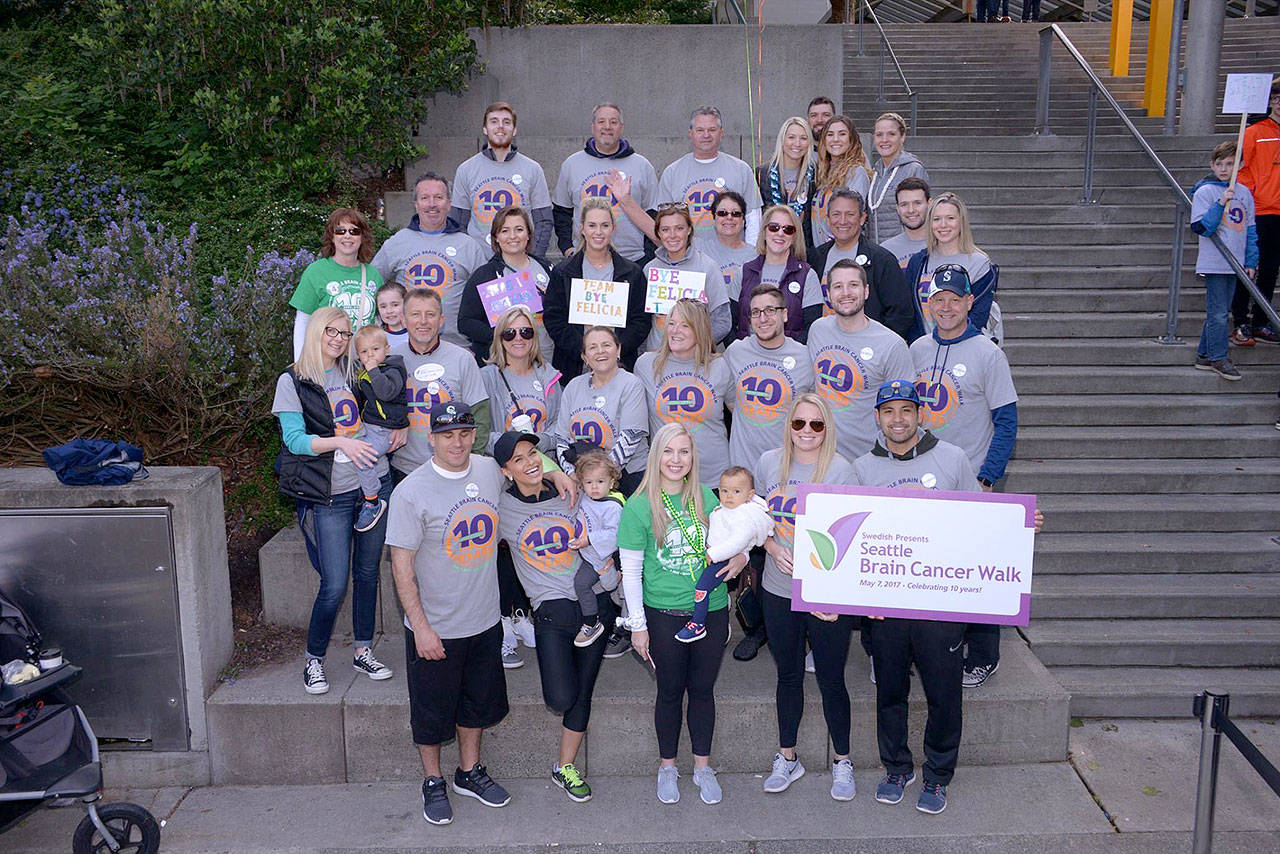At the age of 27, Kelsey Saty lived a normal life. She had recently moved to the Valley, had a good job in the health field, and was married to a great husband.
But in September 2015, Saty was diagnosed with stage II oligodendroglioma. Stage II oligodendroglioma is a low-grade tumor that grows slowly and invades nearby normal tissue. In many cases, the tumor forms years before being diagnosed as no symptoms appear. For the North Bend resident, unrelated symptoms brought early diagnosis.
Saty recalls being at work and pushing through an intense headache. She described that day as “feeling like I was in a cartoon.” It was during lunch, and Saty felt like she was hit by something that caused her to see stars – just like characters do in cartoons when they hit their heads. Her right arm went numb and so did part of her lips. Working in the health field, Saty said thankfully a nurse was able to check her and took her to the nearest emergency room. It was there where she received the bad news. It was more than “just a migraine.”
After her CT scan, Saty and her husband were persistent to find the best neurosurgeon in the area and were recommended to Swedish Medical Center neurosurgeon Dr. Charles Cobbs, who is also the director of the Ben and Catherine Ivy Center for Advanced Brain Tumor Treatment. A week after her trip to the emergency room, Saty was diagnosed with stage II oligodendroglioma.
“I remember looking at [Dr. Cobbs] and just losing it,” Saty said about that day at the hospital. “I’m 27 years old. How is this my life? How is this happening to me?”
Everything was moving so fast and Dr. Cobbs set the procedure for the following Monday. He answered the questions that needed answering and gave Saty as much peace of mind as one can get with hard news, she said.
That following Monday at 5 a.m., Saty was ready for surgery when her mom brought up the subject of naming her tumor to gain closure. Saty didn’t quite agree with the idea and went under without naming her tumor. But by the time she came out and gained enough consciousness, Saty announced she had named her tumor Felicia. She had said “Bye Felicia “ to her tumor.
“Everybody that uses that, they’re [also] saying bye to her,” she said. “The more people that say bye to her, the less likely she is to come back.”
After the surgery, Saty said she didn’t know what her path forward would look like. Dr. Cobbs took out a portion of the tumor without needing further treatment, but there is a possibility the tumor could come back. To this day, Saty visits the hospital every six months for a checkup.
“It’s pretty rare,” Dr. Cobbs said about Saty’s stage II tumor. “Patients can do really well and when I operated on her, I think I got a good resection and she got a really good prognosis. “
Moving forward with life, Saty and her husband decided to try for a baby. It was a scary thought at first, considering that a normal delivery could spark her tumor to grow, but Saty had a normal pregnancy and delivery. Their son Carter is now 8 months old.
“We live life very differently now… especially me,” she said. “I’m so grateful just for every day. Having something like that really opens your eyes. I think everybody takes life for granted, and knowing first hand that it can be taken away from you in an instant really makes you appreciative.”
Saty said she’s grateful for health, for Dr. Cobbs, and everyone at Swedish Medical Center. To give back to research, Saty has participated in the Seattle Brain Cancer Walk. This year, Saty is the 2019 Seattle Brain Cancer Walk honoree and will share her story with thousands of people on May 5. (For more information about the walk, go online to https://bit.ly/2XZ2gLa.)
“If I can help raise awareness about the walk, or share my story, or reach that one person that’s going through something similar… whatever it is, I’m [100 percent in],” Saty said.
Saty’s goal for the walk is two-fold: raise money and increase her team size. If she can reach one more person willing to donate, it will be a great success for the walk and it will support Dr. Cobbs’ research.


